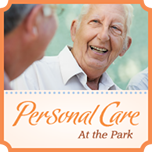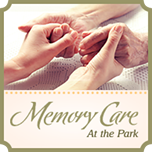
Getting a quality night of sleep is just as important for your overall well-being as physical activity and healthy eating. Sleep is a necessity. It helps us unwind, reduce stress and anxiety, lower blood pressure, and improve focus and memory skills – all things that may go through complications as our years progress. It’s also how our body repairs itself, allowing our immune systems to refresh and reset to prevent diseases.
Do you feel like aging has turned you into a lighter sleeper than you used to be? That’s because your body is starting to pump the breaks on its melatonin, which is responsible for helping you fall into a deep slumber. Without a steady sleep pattern, it can lead to a handful of issues that interrupt our daily lives.
Sleep changes with age are a normal experience and don’t always indicate a major problem. But by understanding what might be keeping you up at night, you can create positive habits that ensure you’re getting the 7-8 hours of sleep you need.
Common Causes of Sleep Interruptions
Sleep-related challenges can arise from underlying yet highly treatable causes. By pinpointing all the potential causes, you can make lifestyle adjustments beneficial for your sleep. Ask yourself the following questions:
- Do you regularly experience feelings of stress and anxiety?
- Are you currently using medications that have sleep-related side effects?
- Do you have any pre-existing health issues?
- Are you getting enough exercise?
- What does your nighttime routine look like now?
Stress and anxiety arise from major life shifts, retirement being one of them. Trying to fall asleep when your mind is in a million different places is challenging and uncomfortable and can get in the way of peaceful rest.
Medications and their side effects can sometimes cause drowsiness or insomnia. If you find yourself wide awake at night or needing to nap more than usual, your medication might be a factor in disrupting your sleep.
Pre-existing health conditions, such as Restless Legs Syndrome (RLS) or sleep apnea, are contributing factors that can keep you up. RLS typically occurs in the evenings, giving a consistent urge to move your legs about. Sleep apnea is a more serious condition that causes breathing to repeatedly stop and start throughout the night.
Exercise is very much connected to our sleep. It helps to calm overwhelming emotions and embrace feelings of relaxation after physical activity. If you feel like you’re not as active as you should be, it can make it hard to fall asleep, or you may feel sleepy at irregular times.
Nighttime routine habits directly impact how well you sleep. Things like having an inconsistent bedtime and wake-up time, drinking, or eating before bed, dozing off with the TV or lights on, and late afternoon naps may be potential culprits. Try to head to bed at the same time each night and create a cozy and quiet space to help you drift off.
Here’s How to Sleep Better with Age:
Engage in calm activities before bed and avoid ones that may be over-stimulating. Rather than gluing yourself to the TV, read a chapter of a book or journal about your day. If you find yourself still lying awake after trying this out, leave your sleeping space and try again. Keep the lights low and skip out on screen time.
Stick to a routine by keeping a consistent bedtime and following through the same motions every night. If your body is telling you, it needs more sleep, set an earlier bedtime. Find out what’s working for you vs what’s not and adjust as needed.
Physical activity releases chemicals in our bodies that help us sleep better. To put it simply, a good workout tires us out. Even if you have health or mobility-related issues, there are plenty of activities to try that will meet your needs. Make sure you give yourself at least an hour between the end of your workout and bedtime. Exercising later in the day sometimes makes it harder to fall asleep.
Reducing stress is much easier said than done. Alleviate the pent-up strain it puts on your body by finding ways to take your mind off things. As mentioned, exercising can be especially helpful, as it releases endorphins that contribute to your happiness. Try listening to calming music, explore meditation, or reach out to a friend or family member when you need someone to talk to.
Reach out to a healthcare provider if your efforts to resolve your sleep issues on your own aren’t as effective as you hoped. Your doctor can recommend additional tips, such as tracking medications or keeping a sleep journal to track your patterns. They can also refer you to a sleep specialist if need be.











